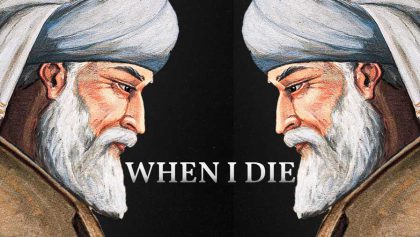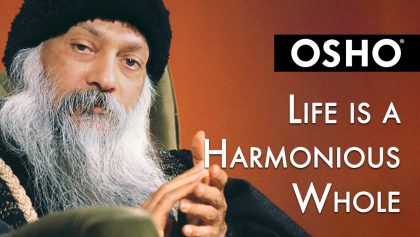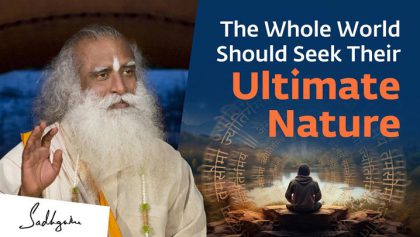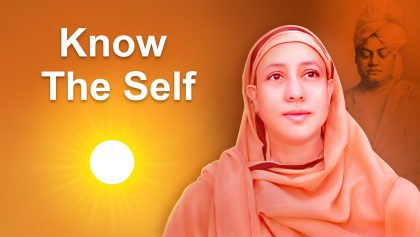It is a significant question, but there are many possible implications in it. The simplest and the most obvious is that a man dies without any cause; he simply becomes old, older, and the change from old age to death is not through any disease. Death is simply the ultimate old age – everything in your body, in your brain, has stopped functioning. This will be the ordinary and obvious meaning of a natural death.
But to me natural death has a far deeper meaning: one has to live a natural life to attain a natural death. Natural death is the culmination of a life lived naturally, without any inhibition, without any repression – just the way the animals live, the birds live, the trees live, without any split… a life of let-go, allowing nature to flow through you without any obstructions from your side, as if you are absent and life is moving on its own.
Rather than you living life, life lives you, you are secondary; then the culmination will be a natural death. According to my definition, only an awakened man can die a natural death; otherwise all deaths are unnatural, because all lives are unnatural.
How can you arrive at a natural death, living an unnatural life? Death will reflect the ultimate culmination, the crescendo of your whole life. In a condensed form, it is all that you have lived. So only very few people in the world have died naturally, because only very few people have lived naturally. Our conditionings don’t allow us to be natural.
Our conditionings, from the very beginning, teach us that we have to be something more than nature, that just to be natural is to be animal; we have to be supernatural. And it seems very logical. All the religions have been teaching this – that to be man means going above nature – and they have convinced centuries of humanity to go above nature. Nobody has succeeded in going above nature. All that they have succeeded in, is destroying their natural, spontaneous beauty, their innocence.
Man need not transcend nature.
I say unto you, man has to fulfill nature – which no animal can do. That is the difference.
The religions were cunning, cheating and deceiving people. They made the distinction that animals are natural and you have to be supernatural. No animal can do fasting; you cannot convince any animal that fasting is something divine. The animal only knows that it is hungry, and there is no difference between fasting and being hungry. You cannot convince any animal to go against nature.
This gave an opportunity to the so-called religious people, because man has the capacity at least to fight against nature. He will never be victorious, but he can fight. And in fighting he will not be destroying nature; he will be destroying only himself.
That’s how man has destroyed himself – all his joy, all his love, all his grandeur – and has become not something higher than animals, but something lower, in every possible way. Perhaps you have never thought about it: no animal in the wild is homosexual. The very idea, and the whole world of animals will burst into laughter. It is simply stupid! But in a zoo, where females are not available, animals turn into homosexuals out of sheer necessity.
But man has turned the whole world into a zoo: millions and millions of people are homosexuals, lesbians, sodomists, and what-not – all kinds of perversions. And who is responsible? The people who were teaching you to go beyond nature, to attain supernatural divineness.
This is only one example. In every other way they have done the same. For example, in India Mahavira was so much attached to the idea of nonviolence that even cultivation – gardening – was prohibited to his followers, because if you cultivate you will have to cut plants… and plants have life, and that will be violence.
His followers were mostly coming from the warrior race, the kshatriyas; he himself was a warrior king. Now they could not fight because fighting was violence; they could not be cultivators because cultivation was violence. They could not be teachers because that was the monopoly of the brahmins, and a brahmin is born; you cannot enter into the brahmin fold, howsoever wise you are. You may be wiser than all those brahmins, but you cannot become a teacher of the people – that is the birthright of a brahmin. So they could not be accepted by the brahmins. They would not like to become the sudras, the untouchables, making shoes, cleaning streets and toilets.
Now the only way possible for them was to become businessmen; all other possibilities were closed. So all the Jainas in India became businessmen, and a strange phenomenon happened: all their violence… because just by not being a fighter or a hunter or a cultivator makes no difference; you are the same person. All their violence became exploitation: they cannot cut off your head, but they can suck your blood. And they became the richest people in the country, for the simple reason that all their violence became concentrated only on one thing, and that was money.
This was not evolution. These people were not better people. The teaching of nonviolence has not helped them to become better – they have become worse! They are the greediest, the most materialist, the most money-minded; their whole world is money, because every other avenue is closed. They talk about money, they think about money, they dream about money. And they can do anything to accumulate money.
Whenever you enforce something, the result is not going to bring a betterment. They have not become compassionate; to be nonviolent means to be loving and to be compassionate. They have become just the opposite. They are not compassionate, they are not kind, they are not loving.
In many other spheres, by different religions, it has been tried to make man something above nature. The result has been without any exception, failure. You are born as a natural being. You cannot go above yourself. It is just like trying to lift yourself off the ground by pulling your legs. You may hop a little, but sooner or later you are going to fall to the ground, and you may have a few fractures. You cannot fly.
And that’s what has been done. People have been trying to raise themselves above nature, which means above themselves. They are not separate from nature, but the idea suited their egos: you are not animals so you have to be above nature; you cannot behave like animals. People have even tried to make animals not behave like animals; they have tried to make them go a little above nature.
In the Victorian age in England, dogs were clothed when people used to take them for a walk. The dogs had coats to prevent them being natural, to prevent them being naked and nude – which is suitable to animals. These kind of people are trying to raise their dogs a little higher than animals.
You will be surprised to know that in the Victorian age in England, even the legs of chairs were covered – for the simple reason that they were called legs, and legs should be covered. Bertrand Russell, who lived almost one century – a long life – remembers in his childhood that seeing the feet of a woman was enough to get sexually excited. The dresses were made in such a way that they covered the feet; you could not see the feet.
It was believed, even just one hundred years ago, that the women of the royal family don’t have two legs. Royalty has to be somehow different than ordinary, common humanity, and nobody had seen – and there was no possibility to see – whether their legs were separate from each other.
But the ego… neither did those royal people make it clear: “This is nonsense, we are as human as you are.” The ego prevented them. If the people are putting them on a higher pedestal, then why bother? – just remain royal. That was one of the reasons why royal families would not allow anybody, a commoner, to be married into the royal family, because he may expose the whole thing: “These people are just as human as everybody else; there is nothing royal about them.” But for centuries they maintained the idea.
I would also like you to be different from the animals, but not in the sense that you can go above nature – no. You can go deeper into nature, you can be more natural than animals. They are not free, they are in a deep coma; they cannot do anything other than what their ancestors have been doing for millennia.
You can be more natural than any animal. You can go to the abysmal depths of nature, and you can go to the very heights of nature, but you will not be going beyond in any way. You will be becoming more natural, you will be becoming more multidimensionally natural.
To me the religious man is not one who is above nature, but is the man who is totally natural, fully natural, who has explored nature in all its dimensions, who has not left anything unexplored.
Animals are prisoners; they have a certain limited area of being. Man has the capacity, the intelligence, the freedom to explore. And if you have explored nature totally, you have come home. Nature is your home. And then death is a joy, is a celebration. Then you die without any complaint; you die with deep gratitude, because life gave you so much, and death is simply the ultimate height of all that you have lived.
It is just like before the flame of a candle goes out it burns brightest… the natural man, before he dies, lives brightest for a moment; he is all light, all truth.
To me this is natural death.
But it has to be earned; it is not given to you. The opportunity is given to you, but you have to explore, you have to earn, you have to deserve.
Even to see the death of an authentic man, just to be near him while he is dying, you will be filled suddenly with a strange joy. Your tears will not be of sadness, sorrow; they will be of gratitude and blissfulness – because when a man dies naturally, living his life fully, he spreads his being into the whole of nature. Those who are present and close to him are bathed… a sudden freshness, a breeze, a new fragrance and a new feeling that death is not something bad, that death is not something to be afraid of, that death is something to be earned, to be deserved.
I teach you the art of life. But it can be called also the art of death. They are both the same.
Osho, Beyond Psychology, Ch 11, Q 1










